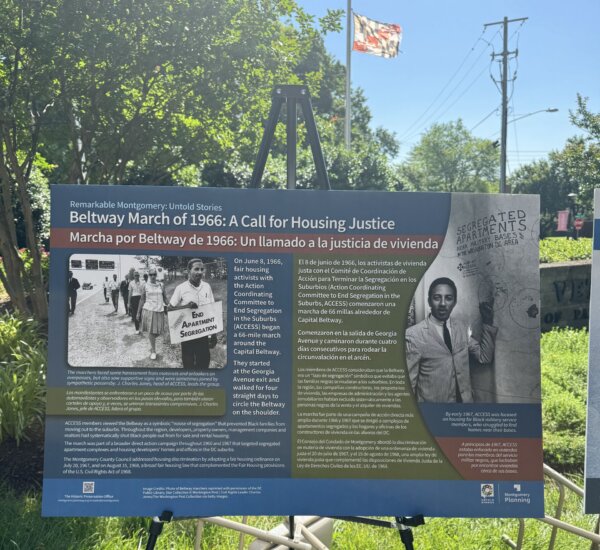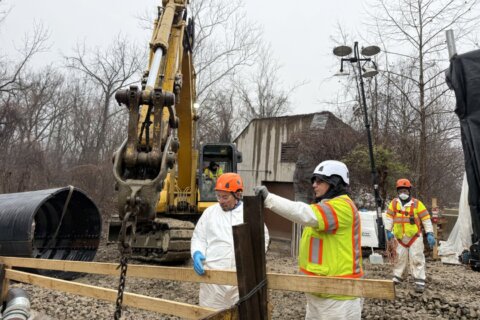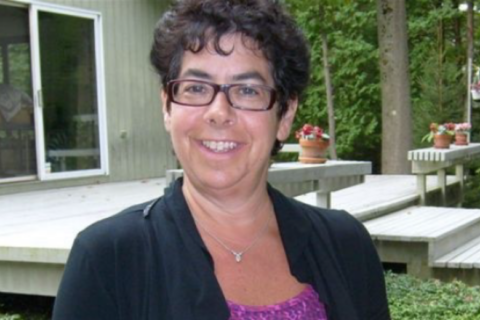This video is no longer available.
On Thursday, the Montgomery County Planning Department unveiled a new historical marker at Wheaton Veterans Park honoring civil rights leaders Elsie S. Horad and Romeo W. Horad Sr.
In the 1930 and 40s, the married couple helped Black residents buy homes despite restrictive covenants and were leaders in advocating for integration.
“Elsie and Romeo Horad stood up for what was right and opened the door for a more equal and just Montgomery County,” said planning supervisor Rebeccah Ballo.
Elsie was raised in D.C., where she taught at public schools for three decades. She was also an active citizen who held leadership positions in the Montgomery County Colored Republican Club and other local women’s groups. Her grandparents, Charles and Jane Webster, campaigned for political candidates that supported Montgomery County’s Black residents.
Their original family home at 2118 University Blvd. West is still there from 1894 and is under consideration for historical designation.
The historical marker is part of Montgomery Planning’s project “Remarkable Montgomery: Untold Stories,” which highlights underrepresented topics in local history.

Montgomery Planning also highlighted another marker that was installed in March at the Forest Glen Metro station. The marker honors the 66-mile march around the Capital Beltway.
On June 8, 1966, activists marched 66 miles around the Capital Beltway to advocate for fair housing. It was led by Jay Charles Jones, the head of the Action Coordinating Committee to End Segregation in the Suburbs (ACCESS).
The march started at the Georgia Avenue exit and they walked for four straight days to circle the Beltway.
“These activists viewed the Beltway as a symbolic noose of segregation that prevented Black families from moving out to the suburban neighborhoods surrounding D.C.,” Ballo told WTOP. “At the time, developers, property owners, management companies and realtors had systematically shut African Americans out of the for-sale and rental housing market throughout the region.”
Get breaking news and daily headlines delivered to your email inbox by signing up here.
© 2024 WTOP. All Rights Reserved. This website is not intended for users located within the European Economic Area.







